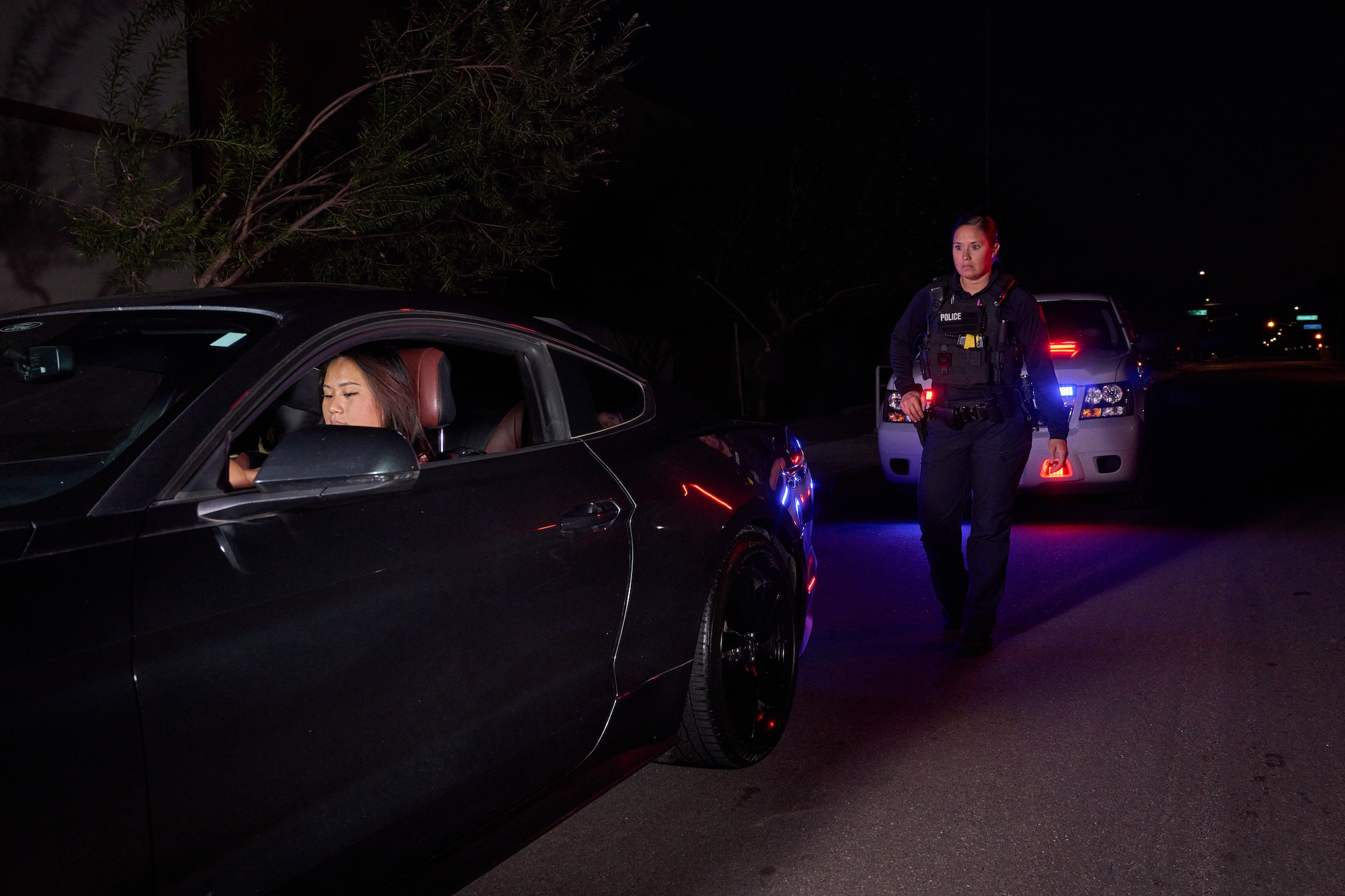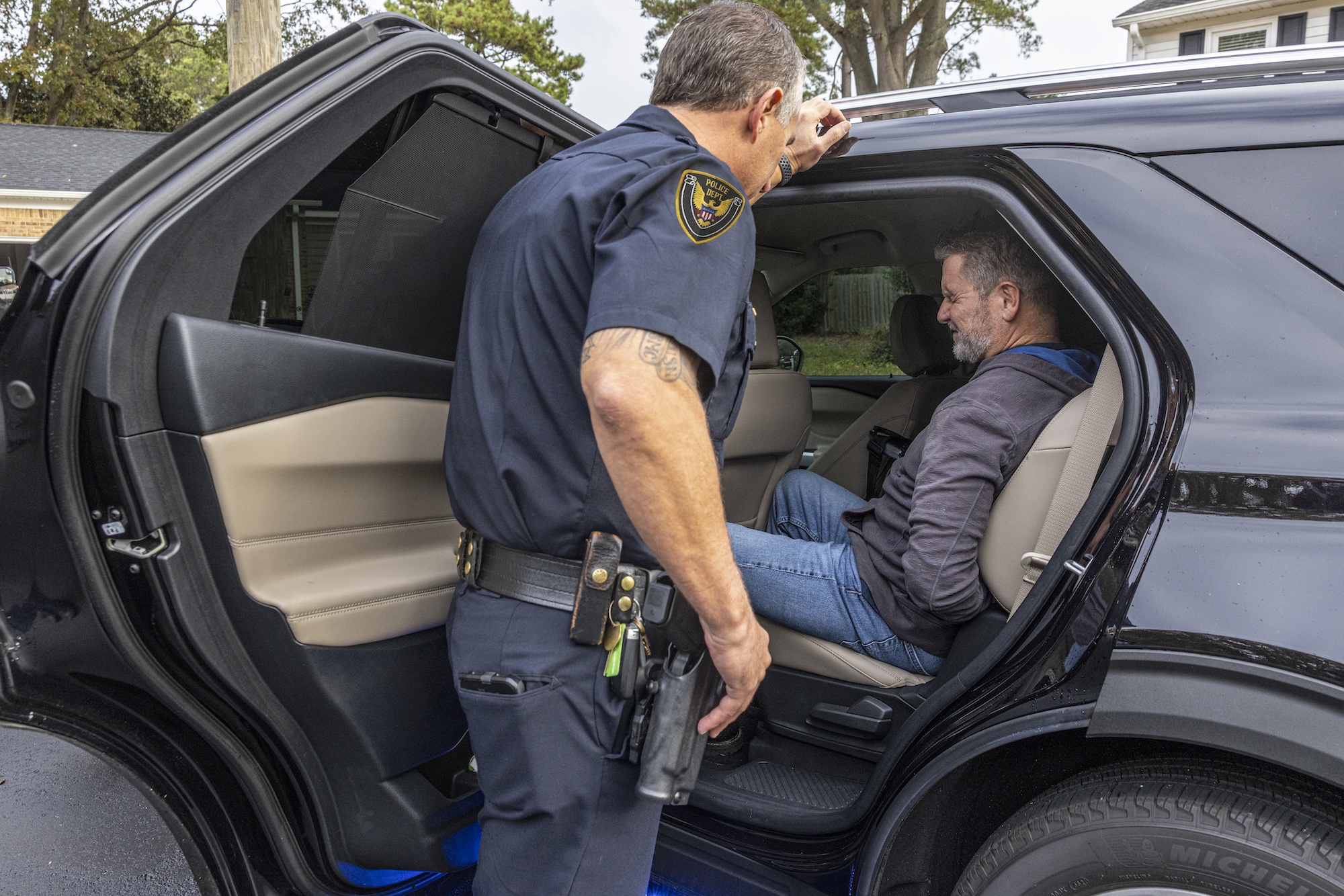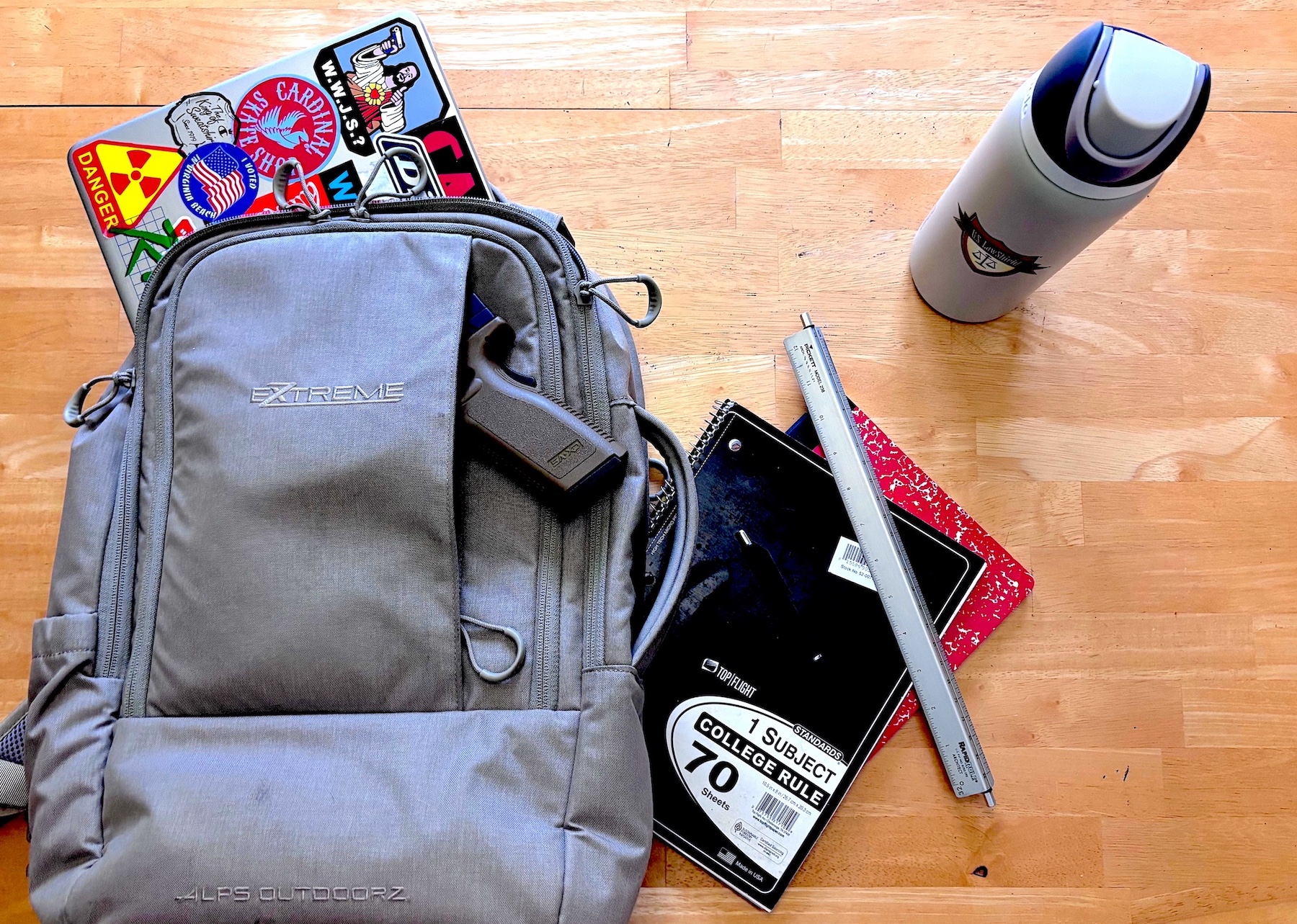
You just left dinner with some friends and are headed home. Your favorite tunes are rocking from your playlist, and you might just watch a movie later tonight. You’re in a good mood. Then it happens.
Blue lights are flashing in your rearview mirror, and the police cruiser isn’t zooming by, he’s locked on your rear bumper. Your heart sinks and then it starts racing. This isn’t what you had in mind. Few things ruin an evening faster than a traffic stop, but what you do next will determine if this ends with a hopeful warning, a possible ticket or worse, a ride to jail.
Pull Over Safely
- Signal immediately and slow down to show the officer you’re complying. But don’t just stop right there in the road.
- Pull over somewhere safe, preferably on the right shoulder or in a well-lit parking lot. At night, flip on your dome light so the officer can see inside your car.
- Turn off the engine, roll your window down and keep both hands on top of the steering wheel where the officer can plainly see them.
- Don’t reach for your wallet or registration until asked. Sudden movements can make an officer jumpy or raise their concerns about their own safety, and nobody wants a gun drawn on them.
Stay Polite, Say Little
When the officer approaches, be respectful and polite. Hand over your license, registration and proof of insurance only when asked. You don’t have to answer questions like “Where are you headed?” or “Do you know why I stopped you?” A simple “No sir” or “No ma’am” is enough. Lawyers will tell you the more you talk, the more likely you are to say something that hurts you later. You definitely don’t want to get indignant or start arguing. That will only end poorly for you.
Know the Law If You’re Armed
This is where things can get precarious. You have every right to own a firearm if you meet the legal requirements, and to be carrying it or have it tucked in a console, if you are in permitless carry state or have a permit. But remember, this officer doesn’t know you from Adam. You could be a preacher, or you could be an ex-con toting a gun and not wanting to go back to the joint for anything. Be a good citizen and make sure you know your legal obligation at this moment.
Some states are duty-to-inform states (see the list below or check your state at the Gun Law Database), meaning you must immediately tell the officer you have a firearm and where it is before reaching for anything. Others are quasi-duty states where you only need to inform if asked. In no-duty states, you don’t have to say a word about your gun and refusing to answer the question cannot be used as probable cause to search your car.
Even where it isn’t required, consider informing the officer if your gun is somewhere he might see it while you grab your paperwork. Keep your hands visible and say something calm like, “Officer, I have a valid carry permit and a firearm in the glove box. How would you like me to proceed?” Wait for instructions before moving.
If They Ask to Search
If the officer asks to search your car, you can legally say no. Again, be respectful in your reply with a simple, “No sir, I do not consent to a search.” This is your Fourth Amendment right. Without probable cause—like an open beer can or liquor bottle in plain view, the smell of marijuana, the grip of a handgun sticking out from under the seat and no excuse as to why it’s there or a blood-soaked backseat—they cannot search. If they have probable cause, they’ll search anyway, so don’t argue or interfere.
(Important Note: Just because it is your right, don’t expect every officer, no matter how polite you are, to be happy that you refused his request for a search. Expect the tenor of the stop to possibly become more confrontational and/or for the officer to try to find another reason to write you up or find probable cause. Keep calm and don’t argue or get rude. Let them do their job and then discuss it with an attorney afterward.)
Take the Outcome Calmly
Whether you get a warning or a ticket, accept it and move on. The roadside is not the place for a debate or an argument. Never in the history of police/citizen encounters has a driver argued their way out of a ticket. If you think the stop or search was illegal, document everything as soon as you can and talk to an attorney later.
Be calm, be polite and know your rights. If you carry a gun, understand your state’s duty-to-inform laws before you hit the road. Whether you’re armed or not, the goal is the same as the police officer’s: get home safely. Few things matter beyond that.
Current Duty-to-Inform States
Alaska
Arkansas
Hawaii*
Louisiana
Maine*
Michigan
Nebraska
New Jersey
North Carolina
North Dakota*
Texas*
Washington, D.C.
Quasi-Duty-to-Inform States (Must Inform if Asked or Show Permit on Request):
Arizona
Colorado
Florida
Georgia
Illinois
Kentucky
Minnesota
Ohio
Pennsylvania
South Carolina
Tennessee
Virginia
West Virginia
(*States with an asterisk have situation-specific or permit-specific requirements — check local law before traveling.)



